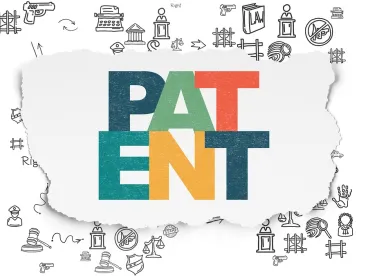On August 25, 2017, the Patent Trial and Appeal Board issued a precedential opinion in Ex Parte McAward, reaffirming the Patent Office’s use of a lower pre-issuance threshold for indefiniteness distinct from the Supreme Court’s Nautilus standard.
A Tale of Two Standards
Under 35 U.S.C. § 112(b), the specification must conclude with “one or more claims particularly pointing out and distinctly claiming the subject matter” regarded as the invention. This definiteness requirement “secure[s] to the patentee all to which he is entitled” and “apprise[s] the public of what is still open to them.” Markman v. Westview Instruments, Inc., 517 U.S. 370, 373 (1996).
During examination, the Patent Office applies the broadest reasonable interpretation of a claim and thereafter determines indefiniteness using the In re Packard standard, in which a claim is indefinite when it contains words or phrases whose meaning is unclear. See In re Packard, 751 F.3d 1307, 1310 (Fed. Cir. 2014)(per curium).
Following the Packard decision, the Supreme Court in Nautilus, Inc. v. Biosig Instruments, Inc., 572 U.S. ___, 134 S. Ct. 2120, 2129 (2014), explained that during an action for patent infringement the “definiteness command” of § 112 “require[s] that a patent’s claims, viewed in light of the specification and prosecution history, inform those skilled in the art about the scope of the invention with reasonable certainty.” The Court stated that the “definiteness requirement, so understood, mandates clarity, while recognizing that absolute precision is unattainable.” Nautilus replaced the prior test for indefiniteness, which found a claim to be indefinite when it was “insolubly ambiguous.”
In Ex Parte McAward, the PTAB declined to adopt the Nautilus standard, explaining:
We do not understand Nautilus … to mandate a change in the Office’s approach to indefiniteness in patent-examination matters in which… the claims are interpreted under the broadest reasonable interpretation standard and an opportunity to amend the claims is afforded. (Slip Op. at 9)
The PTAB explained that the Office’s In re Packard approach effectively results in a lower threshold for ambiguity than the Nautilus standard now applied by courts. (Slip Op. at 10). In other words, the Patent Office may appropriately insist on a greater degree of clarity than would the court in an infringement suit. (Slip Op. at 10 citing to Br. For the United States as Amicus Curiae Supporting Respondent, Nautilus at *21).
Rationale for Lower Pre-Issuance Threshold for Indefiniteness: A Different Approach Where there is an Opportunity to Amend
The PTAB explained the long-standing rationale that during examination the Patent Office should take a different approach than a district court during an infringement action:
During prosecution, an examiner’s indefiniteness rejection begins what is intended to be an interactive process in which the applicant has the opportunity to respond to the examiner by amending the claims or by providing evidence or explanation that shows why the claims are not indefinite.
The Office plays an important role in ensuring that proposed patent claims are clear, unambiguous, and drafted as precisely as the art allows. Claim clarity keeps the rights afforded by patents commensurate with the invention’s contribution to the art. Interpreting the claims as broadly as reasonable during prosecution allows the Office to fulfill this important role. And, in situations where the application of the broadest reasonable interpretation reveals ambiguity in the claim language, the applicant may amend his claims to obtain protection commensurate with his actual contribution to the art. Thus, the broadest reasonable interpretation standard ensure that claims, once fixed and issued, are as precise, clear, correct, and unambiguous as possible.
(Slip Op. at 6-7, citations omitted).
Questions Left Unanswered
Although the PTAB reaffirmed the use of the lower pre-issuance threshold for indefiniteness, the PTAB explicitly did not address the approach to indefiniteness that the Office follows in post-grant review proceedings under the America Invents Act. (Slip. Op. at 11).
Conclusion
Ex Parte McAward reaffirms the existing standard for indefiniteness applied by the Patent Office pre-issuance (i.e., “containing words or phrases whose meaning is unclear”). The PTAB rationales emphasize the need for clear, precise, and unambiguous claim drafting in order to properly protect an invention.





 />i
/>i
